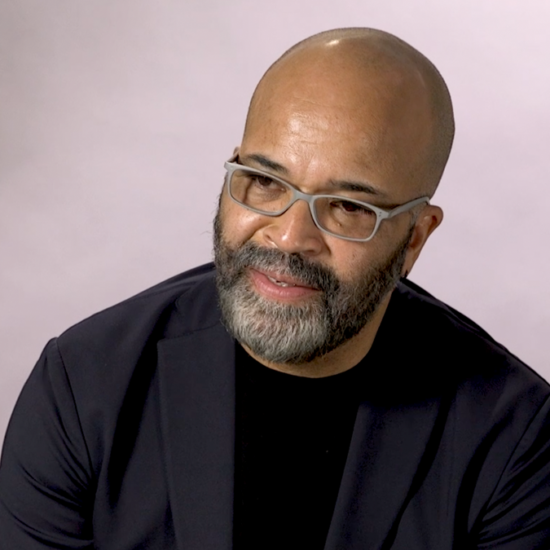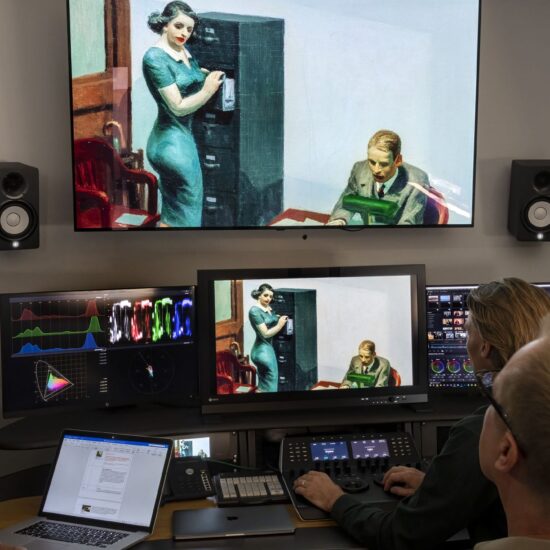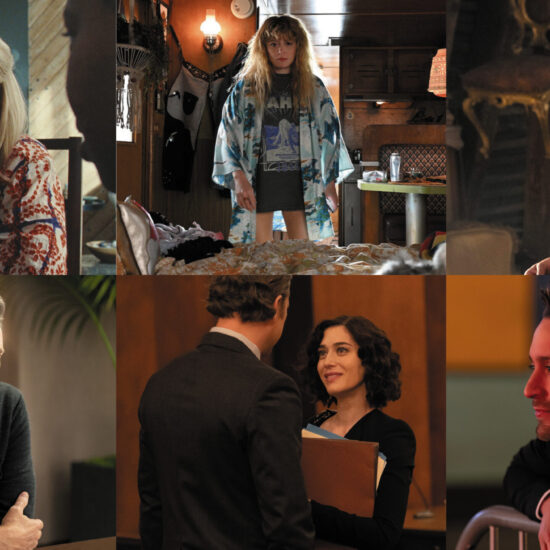
In a typical World Cup year, fans and players have at least a few weeks to recover from the wild adrenaline rush of mainlining so many high stakes games all at once. This year, however, Qatar moving the tournament to the (slightly) cooler months of November and December means that the delirious hangover from Argentina and Lionel Messi’s victory over France will have only barely faded by the time England’s Premier League kicks back off — and I, with my deepest apologies to all the exhausted World Cup alums who have to throw themselves back onto the pitch, can’t wait.
Don’t worry: I’m not about to pretend I’m the first American who’s ever become a fan of Premier League men’s football (aka “soccer”). Even aside from from the World Cup, superstars like Cristiano Ronaldo and David “Bend It Like” Beckham captured stateside attention decades ago, Arsenal’s “Invincibles” remain the stuff of global legend, and FIFA’s wildly popular video game is the best-selling sports video game in the world, period. But as American television’s coverage of the sport keeps ballooning to previously unfathomable levels, there’s been an unmistakable spike in interest in watching and broadcasting these leagues, even while playing out on pitches thousands of miles away.
While the U.S. national men’s team and Major League Soccer have struggled to gain a regular foothold on domestic television, their English and European counterparts have managed to carve out powerful niches here in the States in the meantime. As new streaming platforms Peacock and Paramount+ bolster their platforms with exclusive league rights, U.S. billionaires buy legacy clubs outright, Americans have become more (literally) invested in international men’s football as both an irresistible narrative and an incredible business opportunity. (Congratulations to Michael B. Jordan, the newest minority owner of A.F.C. Bournemouth!) Meanwhile, shows like Apple TV+’s Emmy smash “Ted Lasso” is all about American football coaches taking on the Premier League, while FX’s “Welcome to Wrexham” documents how Ryan Reynolds and Rob McElhenney buy a small Welsh team. Documentarians have turned to soccer to tell stories like Netflix’s “FIFA Uncovered,” Amazon Prime Video’s “All or Nothing,” Disney+’s “Save Our Squad,” Apple TV+’s “Super League: The War For Football,” and so on (and on, and on…).
For fans both new and old, the wave is overwhelming. And from a TV criticism perspective, I’ve been floored by not just the sheer volume of football #content flooding my small screen, but the quality of the stories unfolding along with it.
“It’s genuinely remarkable how much coverage there is,” says Roger Bennett, co-host of NBC’s “Men in Blazers” show that breaks down all things football in podcasts, interviews, and even sold-out shows across the country during the World Cup. “You have the Premier League, Champions League, and La Liga. You have the NWSL and Women’s Super League, even the Colombian and Uruguayan leagues!”
It also seems relevant that in 2020, as the pandemic forced restless people like me to find entertainment within the confines of their own home, English and European football largely resumed regular play by June. And with every single Premier League and Champions League match now available for US viewers on Peacock and Paramount+, respectively, the beautiful game is more accessible for Americans than ever before.
“What Paramount+, ESPN+, Peacock have all realized is that what makes people commit to streamers is a deep, deep emotional commitment by niche audiences, and football is almost at the at the arrow tip of this streaming reality,” Bennett explains. The amount of football now available to watch across American networks is so overwhelming, in fact, that Bennett often marvels at how, in his earliest days in the U.S., he had to scour cities for a single bar that might be playing a game.
“This nation was always like space to Captain Kirk: Football’s final frontier. When I moved here [from Liverpool], the distaste was almost like, ‘you doth protest too much,’” he explains. “Many Americans didn’t just not like football — they had to actively hate it. And now you’re talking about a reality in which live football is everywhere. There’s nowhere better to watch football than in America.”
On an unusually warm October morning, just a few weeks before the World Cup was set to kick off, a growing cadre of football fans gathered in New York City’s Brooklyn Bridge Park under a prominent Paramount+ logo to watch their teams battle it out in the Champions League, Europe’s most prestigious football competition. As host Kate Abdo calmly took her seat on an elevated stage to run lines, her hair swept up in a glorious pile to the cloudless sky, former Liverpool defender Jamie Carragher joined her with the shit-eating grin that’s made him such a delightful chaos agent on Paramount+’s post-match panel show since it first began in the summer of 2020.
The two Brits looked out on the scene, amused and satisfied. “This is completely different from anything I do in England. Football is so serious there,” said Carragher, looking out at the fans co-mingling in Barcelona, Manchester City and Arsenal jerseys with seemingly no issue — a vanishingly rare sight outside the U.S., where football club tribalism still reigns supreme. Abdo nodded, fighting a smile as an admirer behind us frantically waved a wrapped bagel (lox, naturally) with her name on it. “I’ve done the Champions League at Fox, then TBS, and now CBS,” she said. “I’ve never seen a similar reaction to a show in the way this one’s had.”
Kate Abdo, Thierry Henry, Jamie Carragher, and Micah Richards on Paramount+’s Champions League panel
Carragher is a mainstay in the U.K. as a commentator on Sky Sports; Abdo lives in Los Angeles and has been broadcasting in the U.S. for years. But neither saw the American success of their Paramount+ show — a loose “Inside the NBA” style panel aimed at American fans of the Champions League, featuring exactly zero Americans — coming. And yet Abdo, Carragher, and their fellow analysts/former players Micah Richards and Thierry Henry have locked into a unique dynamic that neither condescends to old American football fans nor shuts curious new ones out. The resulting show, packed with games and raucous laughter, is an indispensable bolster for Paramount+’s Champions League coverage, which inspires the streamer’s third-highest number of signups behind the NFL and “Yellowstone.”
“We’re in America, right? Americans like to be entertained,” says Pete Radovich, VP of production and senior creative director at CBS Sports. “So, yes, you could be a serious sports show with highlights and analysis. But we started in the context of COVID, when everything was just so serious. No one lives or dies based on what we do — like, this is sports. At its core is entertainment…and at the same time, you want it to be treated with the respect that it deserves.”
Abdo, who plays the very tricky role of moderator on a show that prides itself on spontaneity, agrees. “Trying to kind of merge those two worlds where you make soccer accessible and fun, but still have a sense of depth, is really the kind of balance we’ve been able to strike.”
In that respect, she refutes the idea that American coverage of international football should assume its audience doesn’t know the basics. “Soccer fans in America are very picky,” she insists. “They’re super well educated about the sport and they feel really proprietorial, so they don’t want to be spoken down to.” Finding the middle ground between long-term fans and new ones is a constant challenge, but one Abdo and Rebecca Lowe, her counterpart on NBC’s “Premier League Mornings” show, have embraced.
“When I first started [in 2013], I knew that I didn’t need to explain too much, because the people watching would be those who already knew the game really, really well,” explains Lowe, who admits she took a risk by leaving a thriving career as a sideline reporter in her native England to host NBC’s coverage. “Then as the first few years went by, and the momentum took off, we were getting more and more new viewers. So I needed to talk in a way that could bridge both of those segments of the audience.”
Asked when he first became aware of the Premier League’s potential reach in the U.S., NBC Sports executive Jon Miller laughs. In the late 2000’s, he says, he used to leave for golf at 6 a.m. on weekend mornings only to run into his son, a teenager who would hunt down a streaming link to watch the Premier League before spending the rest of the day playing FIFA. In 2012, years after Miller’s son had moved out, NBC paid $250 million for the rights to the Premier League in a bid to capture the attention of engaged fans just like him.
“For Saturday mornings at 7:30 or 10, we felt that the competition was a little bit less, and that we could really create strong viewing patterns that would help us establish a strong following,” Miller explains. Ten years later, NBC re-upped the rights for another six years, beating out rival networks CBS and ESPN with a deal now worth $2.7 billion.
The gamble paid off. “The growth has exceeded my dream without a doubt,” Lowe says. “When I first came over, I would see maybe one or two Premier League shirts out and about over the course of a year. Last weekend, I got dropped off at JFK and four different people came up wanting to talk to me about Premier League before I got to my gate.”

Tim Howard, Robbie Mustoe, Rebecca Lowe, and Robbie Earle at NBC’s 2022 FanFest
Tim Howard, a former U.S. and Everton goalkeeper and Lowe’s current on-air colleague, has been floored by the evolution of football fandom in his home country. “I grew up in the game, I’ve been doing this for more than 30 years…and the following has become just even more fanatical,” he says. “We have these live interactive Fan Fests where we cover games and thousands of people are lining up at three o’clock in the morning to get through the gates. It’s incredible. Soccer has really come to the forefront of the sporting landscape in America.”
The fervor has even translated to the scripted side of TV, where “Ted Lasso” has now made its mark in Emmy history two years in a row. Says co-creator Brendan Hunt (who also plays taciturn Coach Beard and often acts as the show’s in-house football encyclopedia), “We do get people telling us a lot on social media, ‘I can’t fucking believe this, but I’m now liking soccer because of fucking ‘Ted Lasso.’ I now know what ‘relegation’ is. Go Leeds!’”
Leeds, for what it’s worth, now boasts several promising American players (including US captain Tyler Adams) on its roster, and its American manager Jesse Marsch keeps getting dubbed the “real life Ted Lasso” — a lazy comparison, given that Marsch is both very experienced and one of the saltiest managers in the league. But the point stands: wherever there’s a good story, there will always be an audience waiting to devour it.
“It really is a telenovela being played out live by a ‘Star Wars’ cantina worth of characters with the world watching under conditions of hysterical pressure — and that is utterly thrilling,” says “Men in Blazers” host Bennett. “I mean, football has so many bloody levels of humanity and psychology, sociology, politics. There’s an old saying that when two nations take the field, their nation’s history takes the field alongside them, and these games all just have history seeping through them.”
Bennett and “Ted Lasso” star Hunt are such enormous fans of U.S. soccer, in fact, that they co-hosted a podcast about it leading up to the World Cup. The duo agree that the ideal scenario would be to translate American enthusiasm for the Premier League into enthusiasm for growing the sport here, too. “That is my master plan,” says Hunt, dry but perfectly serious. “So if I’m contributing to that in any shape, or form, then I will truly feel like I’ve done something worthwhile.”

Brendan Hunt, Jason Sudeikis and Nick Mohammed star in “Ted Lasso”
Courtesy of Apple TV+
Until that tipping point when U.S. soccer gets proper systemic and popular support, there’s just something about English and European football that hits different. Even an ocean away, it’s easy to feel that history coming through the television screen and want to be a part of it. In adopting Tottenham Hotspur as my team, I knew that I was also adopting both a serious rivalry against Arsenal and general fatalism towards Spurs’ tendency to stumble at the most crucial moments. (I am, apparently, a glutton for pain.) As a TV critic, I also know I always want my stories to have stakes — and English and European leagues have plenty, in a way American ones simply don’t.
As alluded to by Hunt (and illustrated in the devastating first season finale of “Ted Lasso”), relegation is what happens at the end of a season to the bottom three teams, thus bumping them out of one league tier into the one below — a terrible blow on just about every emotional and financial level there is.
“When I look at certain leagues in American sports,” says former player Howard, “there are teams that get halfway through the year to the All-Star break and they’re out. It just becomes about how to plan for next season. But in the Premier League, every single game counts.”
Is this stressful? Yes, beyond words. As a dramatic conceit, though, you could hardly ask for better. “Relegation is so powerful, and so compelling,” says Hunt. “From an audience standpoint, it diminishes the amount of meaningless filler. It’s such a wonderful quirk of football and it really makes me wish we had it in America.”
Granted: for relegation to happen in American soccer, the MLS would have to invest in the kind of systemic support that international football has enjoyed for decades. But Hunt’s right in that relegation would quickly inject stakes where there currently are very few. “You know, the whole concept of the Chicago Cubs before 2016 is something that Europeans just can’t comprehend,” he continues. “This notion that you’re able to lose and lose and lose and lose and you just keep on losing and then you get known for losing. In Europe, they would’ve ceased to matter.” On the other hand, he adds, “how great would it be if the Yankees played the Mud Hens someday?”
The reality of relegation must strike fear in the hearts of American Premier League owners like Liverpool’s John Henry (also of the Red Sox) and Chelsea’s Todd Boehly (also of the Dodgers and — yes — the Golden Globes). If their teams can get bumped out of the most prestigious competitions of the Premier and Champions leagues, they could also lose many millions of dollars in revenue. But that threat of irrelevance is exactly what makes the league so riveting, week in and week out. As Hunt puts it: “You sure can get lazy with money, and relegation makes you earn it.”
On the other side of the spectrum is the Champions League, which pits all the top English and European teams against each other in a yearlong battle royale. This all-star quality made it an irresistible property for CBS Sports says VP Radovich, who grew up in a Croatian immigrant family obsessed with all things football. “We do the NFL, every three years we do the Super Bowl. When we do golf, we have the Masters. For college basketball, we have the NCAA Tournament. And as far as annual competitions, World Cup aside, which is every four years, there’s nothing that comes close to the Champions League in this sport, with the best players in the world,” he says. “It’s as big as it gets.” Now able to broadcast this competition in a way that was never possible when he was a kid in Queens, Radovich isn’t half as surprised as his on-air talent by the way it’s already succeeding.
Because for as exhilarating as international football can be, there’s also something to the basic fact that it is, after years of frustrating blackouts for stateside fans, very easy to watch. Peacock’s blanket coverage of the Premier League even outdoes that of the U.K. itself, thanks to a combination of several networks sharing rights and the league’s notorious “blackout rule” (which currently bans games played at 3 pm on Saturdays to be broadcast in the U.K., ostensibly to keep the in-person experience valuable). In short, as Hunt points out, “we have access to more games in America than they do legally [in England]! So we can kick back with our 10 am beers in Brooklyn and laugh at them from afar.”
He jests, but only barely. When Manchester United took on rivals Liverpool earlier this fall, I found myself wedged in between rabid fans at Brooklyn’s Monroe Pub, the borough’s official Liverpool bar that opens for every single game (yes, even the ones that start at 7:30 am EST, though those at least reward the diehards with some breakfast tacos). Surrounded by Liverpool scarves, Mo Salah jerseys, and semi-terrifying Jürgen Klopp cutouts, the only way you’d know the bar wasn’t in England was thanks to the occasional, very American outbursts of, “are you KIDDING, ref?!” when a call didn’t go the team’s way.
As might be expected of a crowd that turned out in force at 2 p.m. on a Monday, these fans were as knowledgeable as they were passionate about a team they may never see in person, but love to the death anyway. They, like me, had fallen head over heels for players, clubs and traditions that lay so far outside what they had come to expect from American sports, which wipe the slate clean every year as best they can. Good stories are good stories no matter where they come from, and these overseas leagues — monied, determined, wild and unpredictable — are home to some of the best.














